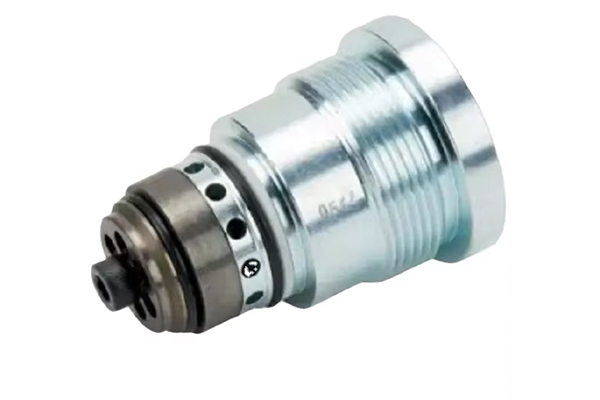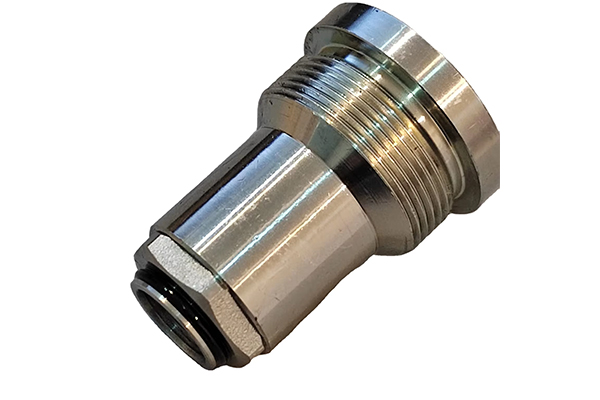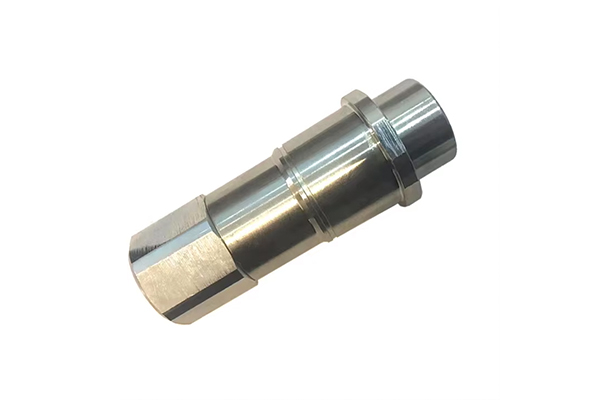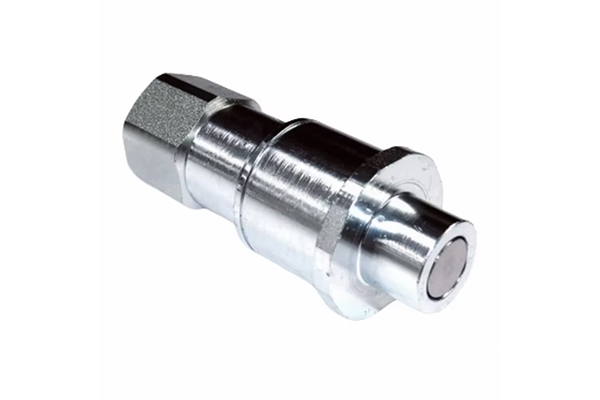The performance advantages and disadvantages of hydraulic quick connectors of different materials under special working conditions
Release Time : 2025-01-02
Hydraulic quick connectors are widely used in many fields, and connectors of different materials perform differently when facing special working conditions.
First of all, hydraulic quick connectors made of stainless steel have excellent corrosion resistance. In special working conditions such as chemical and marine engineering, stainless steel connectors are often exposed to various corrosive liquids or in high humidity and salt mist environments. They can effectively resist chemical erosion, maintain structural integrity for a long time, ensure the sealing of the hydraulic system, and avoid leakage risks. Its strength is also high and can withstand certain pressure shocks, but relatively speaking, the cost will be higher, and in low temperature environments, the toughness will decrease, and brittle cracking may occur.
Brass connectors have good conductivity and are advantageous for some hydraulic systems involving electromagnetic control or working in conjunction with electrical equipment. In general industrial hydraulic circuits, brass connectors have excellent processing performance and are easy to manufacture precise internal structures to ensure smooth passage of fluids and tight connections. However, brass has poor corrosion resistance. Under special working conditions with strong acidity or alkalinity, the surface is easily corroded, affecting the life of the connector and the sealing of the system. It is especially not suitable for chemical corrosive liquid transmission scenarios.
Hydraulic quick connectors made of engineering plastics are light in weight and have good insulation properties. They have unique advantages in the aerospace field, can reduce the weight of aircraft, and avoid potential risks caused by static electricity. In the food and pharmaceutical industries, plastic connectors are non-toxic, corrosion-resistant, meet hygiene standards, and can ensure product quality and safety. However, their mechanical strength is limited and their high-temperature resistance is insufficient. When the hydraulic system is in high-temperature and high-pressure conditions, such as the high-temperature hydraulic system in the metallurgical industry, plastic connectors are prone to deformation and failure, and cannot meet the high-strength use requirements.
Hydraulic quick connectors made of carbon steel have low cost and high strength. They are widely used in some civil hydraulic equipment with strict cost control and relatively mild working conditions, such as small agricultural irrigation systems. However, carbon steel is prone to rust. In humid environments or long-term contact with water, additional anti-rust treatment is required, otherwise rust will cause the connector to get stuck and the sealing performance to decrease, affecting the normal operation of the entire hydraulic system.
Aluminum alloy combines a certain strength with a light weight, and is highly favored in the field of lightweight automobiles, which can meet the needs of automobile hydraulic braking systems. Its corrosion resistance is better than carbon steel, but it is still not ideal in strong acid and alkali environments, and the hardness of aluminum alloy is relatively low. Under special working conditions of frequent plugging and unplugging and bearing large external forces, the wear of the joint may accelerate, affecting the service life.
In short, when choosing the material of hydraulic quick connector, it is necessary to comprehensively consider the specific requirements of special working conditions and weigh the performance advantages and disadvantages of different materials to ensure the safe and efficient operation of the hydraulic system.







